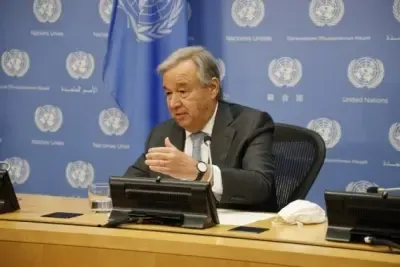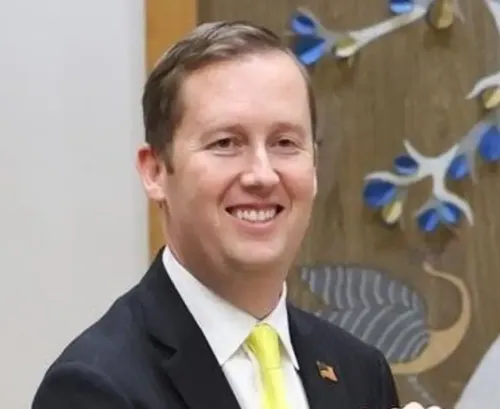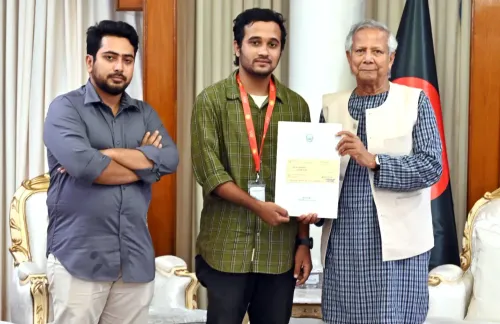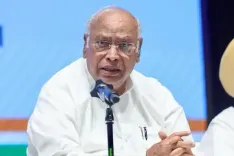How is South Korean President Lee Transforming Military Defense?
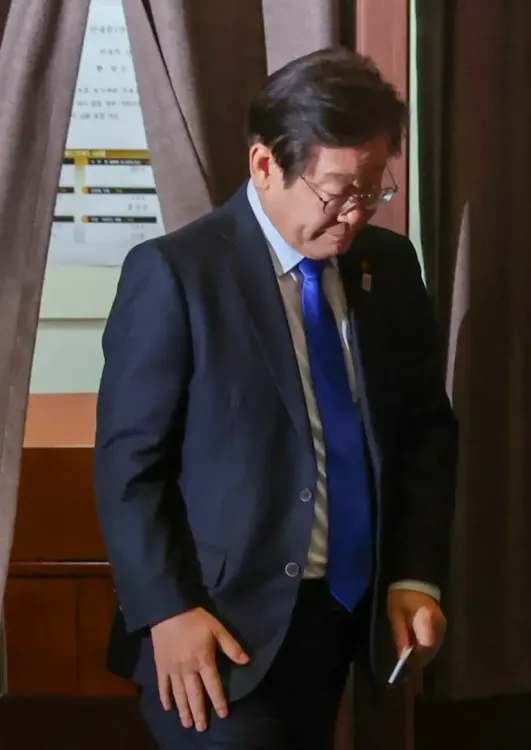
Synopsis
Key Takeaways
- Defence reforms focus on technology and innovation.
- AI combat robots and drones enhance military capabilities.
- South Korea maintains a significant reserve force.
- Increased defence spending is essential for modernization.
- Dialogue with North Korea remains a priority for peace.
Seoul, Sep 21 (NationPress) South Korean President Lee Jae Myung on Sunday committed to implementing robust defence reforms aimed at establishing a smart and independent military capable of safeguarding the nation against any potential invasion, rather than depending solely on troop numbers.
"While the issue of population is significant and immediate troop resources are limited, there's no need to concern ourselves about our defence strength by merely comparing the number of regular soldiers," Lee expressed in a Facebook post.
"A unit of fifty personnel, armed with artificial intelligence (AI) combat robots, autonomous drones, and precision missile systems, can effectively confront tens of thousands of adversaries," he stated, advocating for a shift towards a smart and professional military equipped with cutting-edge technologies, as reported by Yonhap News Agency.
In a comparison to North Korea’s military capabilities, Lee highlighted that South Korea possesses a reserve force of 2.6 million individuals ready for combat, emphasizing that the nation ranks fifth worldwide in defence capabilities.
Lee urged for an increase in defence spending and the development of a smart military, while fostering the national arms industry and enhancing security diplomacy, to create a nation that will never face invasion.
He stressed the necessity of achieving formidable and autonomous defence capabilities, especially as the world appears to be moving towards armed conflicts following one of the longest periods of peace and coexistence in human history.
Lee also rejected what he termed a "submissive" mindset that asserts such defence capabilities are unattainable without foreign forces.
Earlier this week, he reiterated his intention to pursue lasting peace on the Korean Peninsula through dialogue and collaboration with North Korea.
His comments came in a Facebook post commemorating the seventh anniversary of an inter-Korean military agreement that initially halted hostile actions along the border.
"The government will gradually fulfill its responsibilities, alongside the citizens, to rekindle the spirit of the Sept. 19 military agreement and establish lasting peace on the Korean Peninsula through dialogue and cooperation," Lee remarked.
Reaffirming his dedication to peace after years of conflict that have effectively rendered the military accord aimed at reducing tensions obsolete, he stressed that his administration has taken tangible actions since assuming office in June.
"Peace is the cornerstone for both democracy and economic advancement," he explained, which is why he instructed the cessation of loudspeakers along the border and the distribution of propaganda leaflets directed at the North.
Lee reiterated the three principles outlined in his Liberation Speech last month, despite Pyongyang’s dismissal of his peace initiatives.
"I committed to respecting the North Korean system, refraining from pursuing unification through absorption, and harboring no intentions of hostile actions, and that promise stands firm," he asserted.
He indicated that the government will strive to alleviate the concerns of border-region residents, who face sleepless nights due to military tensions, economic threats from military confrontations, and dangers to democracy posed by forces that exploit the divided peninsula.

